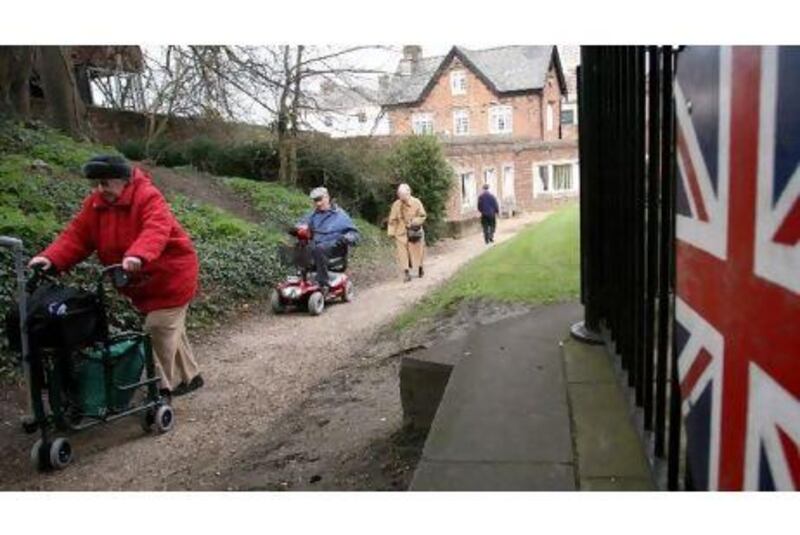Hands up those who want to live to 100. Chances are many of us Britons will live that long, whether we like it or not.
The UK department of work and pensions (DWP) predicts one in six Britons today - more than 10 million of the country's 62 million people - will live to be a centenarian. More than half of them are aged between 16 and 50.
In total, about 500,000 people in the UK will be aged at least 100 by 2066, including nearly 8,000 aged 110 or more, the supercentenarians. This compares with nearly 12,000 people today who are aged 100 or more and fewer than 100 who are more than 110 years old.
"Oh dear! I wouldn't want to live that long," says Phyllis Varnes, 80, a grandmother. "Can you imagine being a 100-year-old in this winter? Not being able to move much in that cold and wearing layers and layers of old cardigans just to keep warm to save money on the heating bill?"
It is a grim thought probably shared by many British pensioners. What is there to look forward to as a centenarian?
You've seen it all, done it all, and still no one wants to learn from your experience.
Your advice is seen as mere rambling. You live in the nursing home, regretting that the house you dearly hoped to pass on to the children will have to be sold for your welfare expenses.
Recent surveys have found the scale of happiness is U-shaped. People start out their adult life generally happy.
From then on things start going downhill until they reach a nadir at the global average of 46. After this midlife crisis, people become less stressed, less anxious, more accepting and generally happier.
It is not clear from the surveys at what age the U-bend stops but most likely unhappiness starts creeping in when stiffening muscles, aching joints, fading eyesight and fogging of memory become a burden.
Already many Britons face a bleak retirement with little savings put aside for a decent pension, a problem aggravated by global economic upheavals and cuts in UK government spending to tackle a yawning deficit.
Longer life expectancy will therefore be onerous not just to the individual, but it will also have profound social and economic implications. People will have to pay more taxes to meet the costs of pension and health care of the elderly, who will spend a third of their lives in retirement.
The government is considering significant reforms to the pension system, including linking the state pension to life expectancy. This could mean future generations working into their 70s.
It's a nightmare scenario for all concerned.
Even in Japan, a country renowned for longevity and respect for the aged, some families have adopted the scam of claiming the pension of elderly relatives who have died, sometimes for decades.
More than 230,000 elderly people listed as being 100 years old or older were unaccounted for in a nationwide inquiry last September. The inquiry followed the discovery of mummified remains in the family home of the man thought to be Tokyo's oldest.
The scandal spotlighted the isolation and loneliness faced by millions of elderly people as the Japanese government struggles to cope with a rapidly greying population.
The British government faces a similar threat. The country has seen a rise in what is being dubbed the "grey crime wave". Since the recession, the number of over-65s being arrested and ending up in jail has increased by between 15 and 25 per cent. Although still a low proportion of all crime in the UK, it is serious enough for a prison in Portsmouth on the south coast of England to provide an "elderly wing", complete with stairlifts and other adaptations.
Experts are divided over whether the trend is due to poverty among the elderly or courts becoming tougher on perpetrators of crime.
Whatever the reason, longevity seems to be overrated. But then, to quote the French actor Maurice Chevalier, old age isn't so bad when you consider the alternative.
For sure, 2066 will be a very busy time indeed for the DWP's centenarian clerk, who works with Buckingham Palace to ensure citizens receive a 100th birthday card from the monarch.





